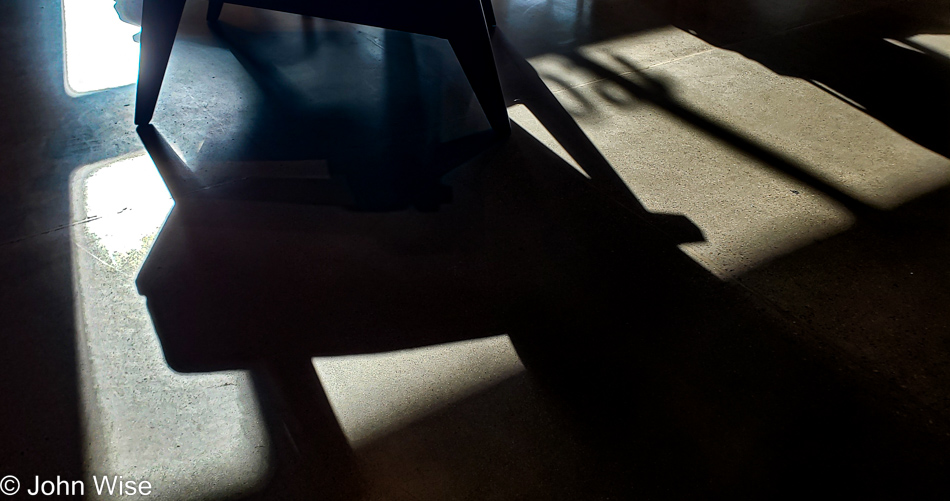
Today, I’m asking, “Where is a place?” because a place that was once one thing has changed to become something else. There’s the fast and easy answer that says nothing has changed other than the observer, but that’s only part of the story. A crass example might be found in two plots of land found in Oświęcim and another in nearby Brzezinka, both found in Poland. Back during World War I, a migrant worker camp was built in Oświęcim. After that war, Polish soldiers took over the facility. Prior to this, I’d imagine the area was farmland, but I cannot find definitive information to confirm that. Regarding the other location, meaning Brzezinka, it apparently was wide open just before development activities got underway.
Starting in 1940, the army barracks and, subsequently, the large plot of nearby land were being repurposed. Up to this point in history, these places were of no significance at all, but that changed as Oświęcim, infamously known as Auschwitz, and Brzezinka, better known as Birkenau, became two of the most notorious concentration camps. During their years of being operated as extermination camps, approximately 1.1 million people lost their lives there. Following World War II, the camps became memorials.
As memorials, these sites have become solemn grounds that remind humanity of the atrocities people are able to commit against one another. My point is that places start out as ordinary, yet if extraordinary events transpire, they can end up inscribed in cultural memories with significance that transcends the easily forgettable.
I know that this is a heavy-handed example where readers might say that nothing should be compared to such things and that I risk sliding towards the sacrilegious, but in my opinion, places hold memories, and while it is our collective knowledge that imbues a place with such notable attributes, they do exist.
Well, this was a long-winded (I’m well known for such things) way of getting to the main gist of my post, “Where is a place?” I’m currently at a place where I find the memory of what it was to have greater meaning to me than what I perceive the location to have now. I do understand that my own trajectory is constantly moving, but I am not the change I register as I sit here writing, observing, and contemplating. The differences are arriving with others who have started considering this place as one they could consider frequenting. The place is being repurposed.
Similarly, America as a place and an idea are mutable with a plasticity that, while still pliable, could at any time calcify and appear destined to collapse due to a rigidity that steals its flexibility. Back to my ugly references to concentration camps and the prisoners whose lives ended in Oświęcim, Brzezinka, or Treblinka, those who arrived in the four-year period of mass extermination saw their limited time in a camp as the horizon looking at the end of their existence. A killing system had an infinite grasp and could never change in the eyes of those destined to die there. Similarly, in pre-Soviet czarist Russia, an empire ruled for nearly 400 years before Lenin and Stalin brought the Union of Soviet Socialist Republics to be a force of control for almost 70 years before calcification crumbled its bones and wrought change. All systems appear to fail when change is lost to sclerotic stagnation.
Change is the operative word here today. Places change, and we change, but if we fail to transform ourselves and places do not change, we begin to normalize a docility that demands things stay the way they always were. The brilliance of America since its founding has been this endless metamorphosis that allowed us to adapt to the needs of the day, but today, we are seeing a pandering to base natures where those who abhor change want to pass on stability to strong men who offer promises of today being similar to the day, week, month, and years before when a place and your sense in it was known and familiar. This line of thinking negates ideas of change and, if not rooted out, risks dragging people into the inevitable convulsion that must catapult stagnation out of the doldrums.
The effort to break free of the crippling gravity found in the total loss of movement is akin to the rocket lifting a multi-ton payload into the heavens; all hell must break loose. The violence of the sort that tears apart what it is leaving behind is the revolution that upends those who brought malaise and are about to be murdered before their very eyes. War is then the inevitable outcome that must arrive to wash away the fear of change. Are we headed into that war?
I hope we are not moving towards conflagration as I surely do love the place I inhabit in my life at this time and feel loathe to change that, though I do enjoy my inner conflict that remains in a near-constant state of battle.
Our motto for the next decade could read, “Fighting an internal war against complacency for personal freedom.”